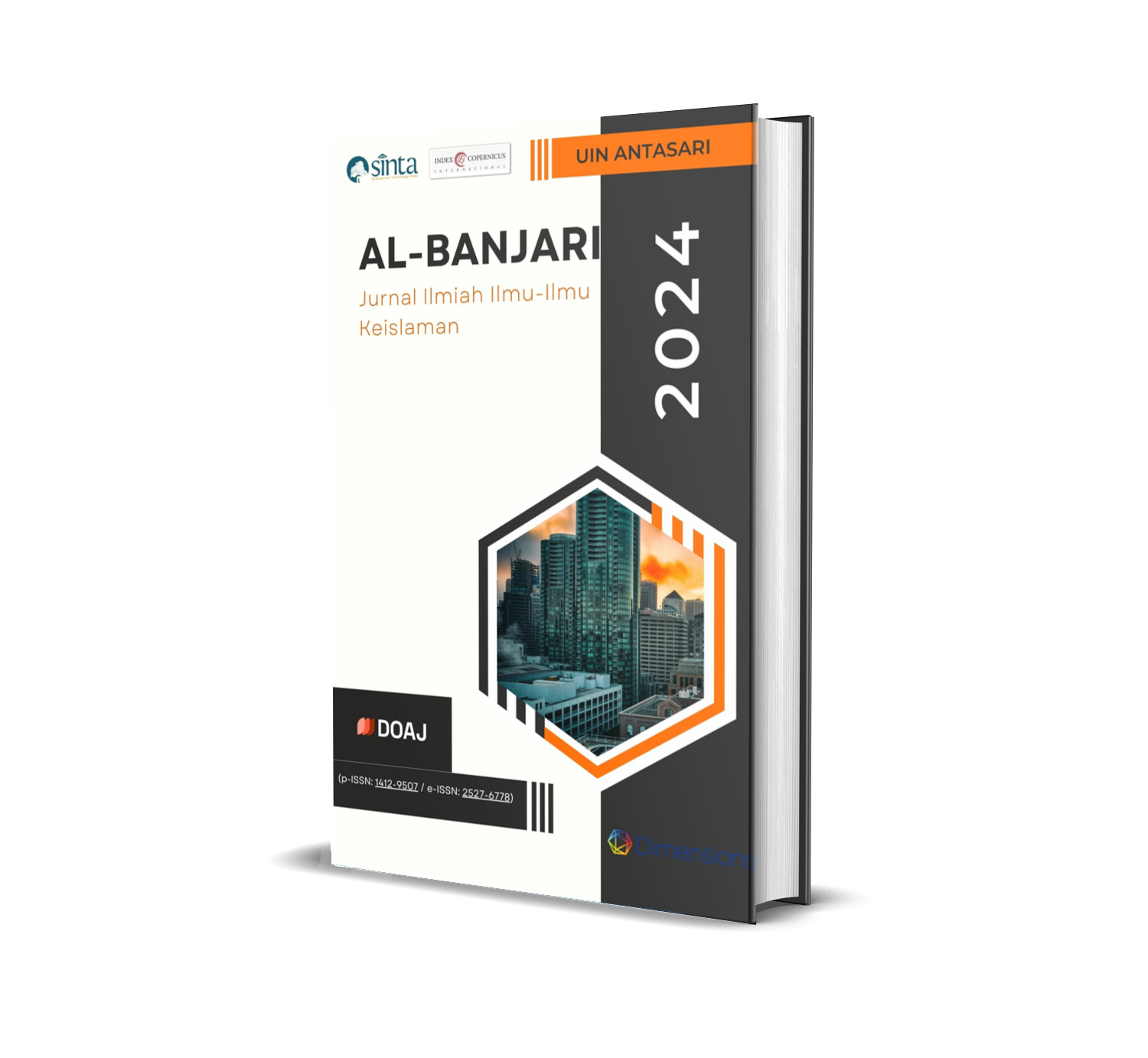Reviewing the Fatwa of Digital Da'wah in Indonesia Based on the Paradigm of Contemporary Islamic Law
DOI:
https://doi.org/10.18592/albanjari.v23i1.12825Abstract
The abundance of ideologically charged digital da'wah content often has implications for integration problems amidst the plurality of social life, not only among Muslims themselves, but also social relations with other religious communities. The polemic calls for the importance of digital da'wah paradigms and ethics, both regulated by state norms and religious norms. In this regard, this qualitative study with a normative-philosophical approach aims to identify the paradigm of contemporary maqasid sharia in the fatwa of the Indonesian Ulema Council of East Java Province No. 06 of 2022 on Digital Da'wah Ethics.. The maqasid sharia theory developed by Jasser Auda was used as the theory of analysis. Reduction, presentation, and verification techniques used in data analysis. The results of this study found the development of maqasid sharia value as the basis for the paradigm and ethics of digital da'wah in the provisions of the fatwa, namely the value of hifz 'ird in the importance of humanist and pluralist da'wah content, and The value of hifz waton in the importance of da'wah content that prioritises public conduciveness and nationalism. the importance of developing maqasid fiqh for preachers in the paradigm and ethics of da'wah in the midst of the plurality of social, religious and state life. However, this study has not examined the effectiveness of the fatwa in the field. It is important to study this further.Downloads
Published
2024-07-13
Issue
Section
Articles
License
Copyright (c) 2024 Athoillah Islamy, Muhammad Abduh, Eko Siswanto, Mohamad Badrun Zaman

This work is licensed under a Creative Commons Attribution-ShareAlike 4.0 International License.
Authors who publish with this journal agree to the following terms:
- Authors retain copyright and grant the journal right of first publication with the work simultaneously licensed under a Creative Commons Attribution License that allows others to share the work with an acknowledgement of the work's authorship and initial publication in this journal.
- Authors are able to enter into separate, additional contractual arrangements for the non-exclusive distribution of the journal's published version of the work (e.g., post it to an institutional repository or publish it in a book), with an acknowledgement of its initial publication in this journal.
- Authors are permitted and encouraged to post their work online (e.g., in institutional repositories or on their website) prior to and during the submission process, as it can lead to productive exchanges, as well as earlier and greater citation of published work (See The Effect of Open Access).


































